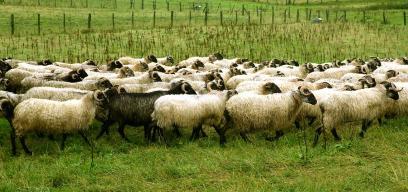Have you noticed a theme at Simple, Good and Tasty (SGT) this week? Nope, it’s not about the salmonella outbreak in factory-raised eggs; Michael Pollan, Bill Marler and John Robbins are doing a good job covering that subject for us. And, no, it’s not about the growing controversy about whether or not to sell flavored milk in school cafeterias; thank you, Renegade Lunch Lady Ann Cooper, for taking care of that one.









